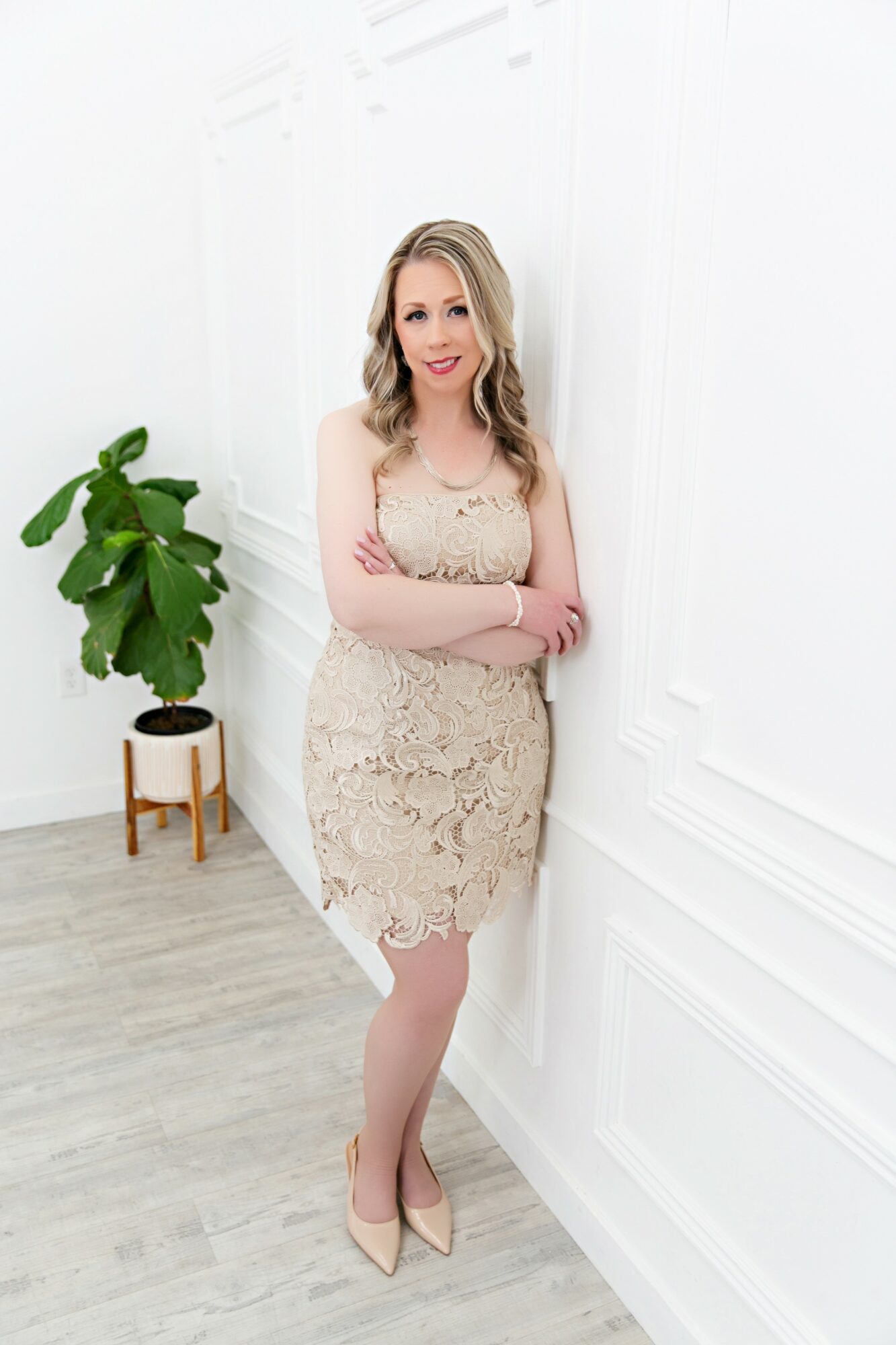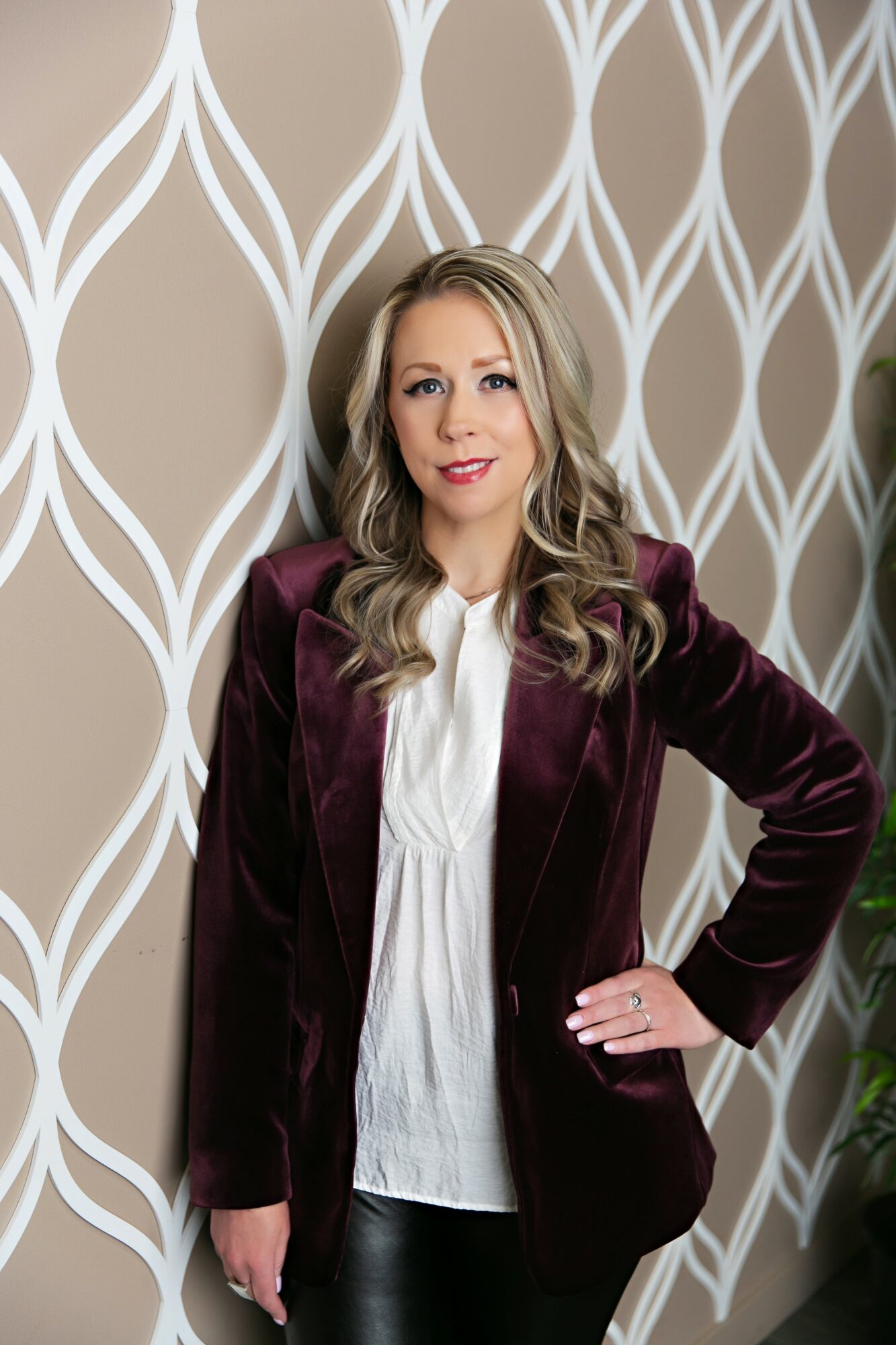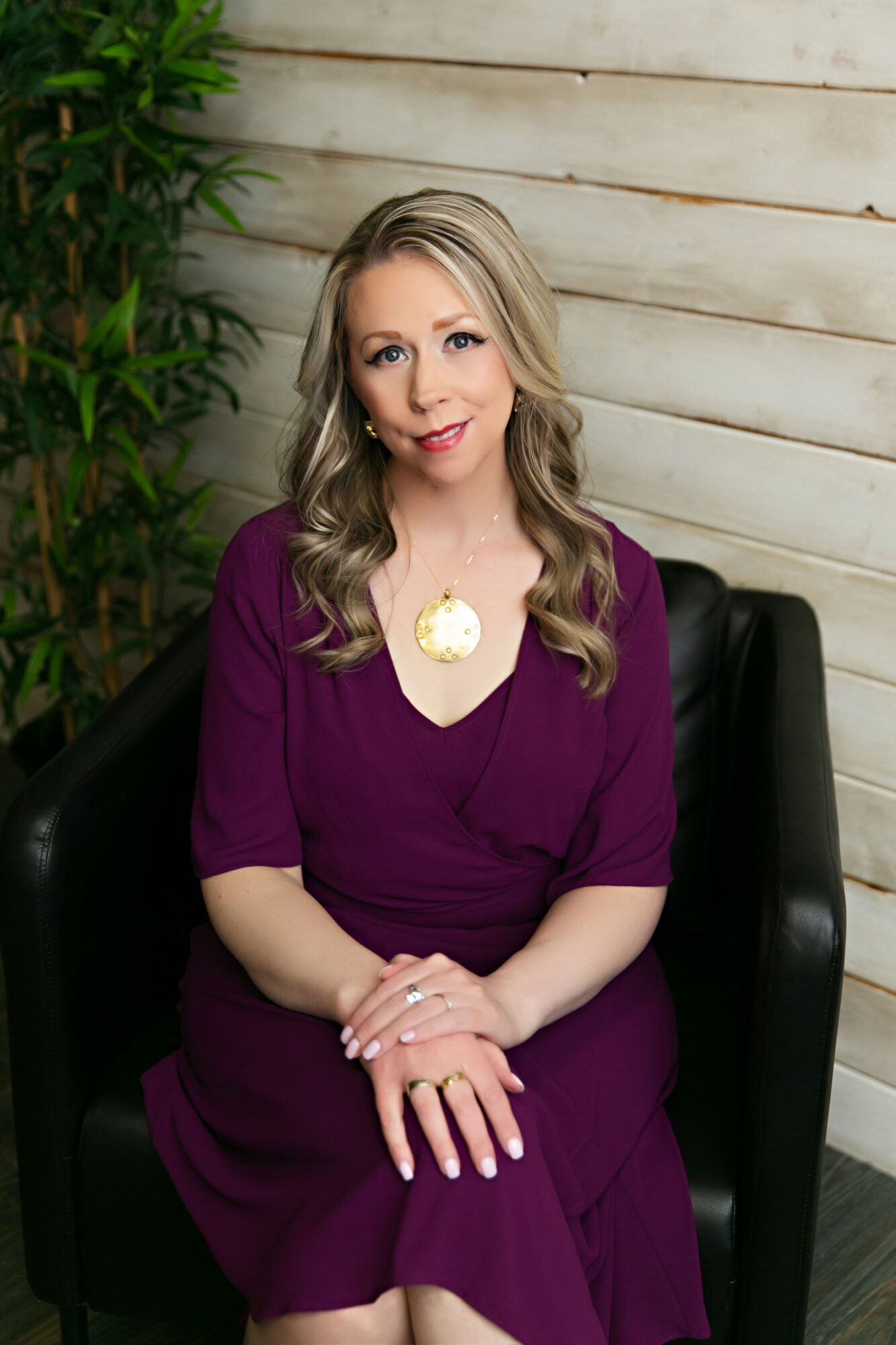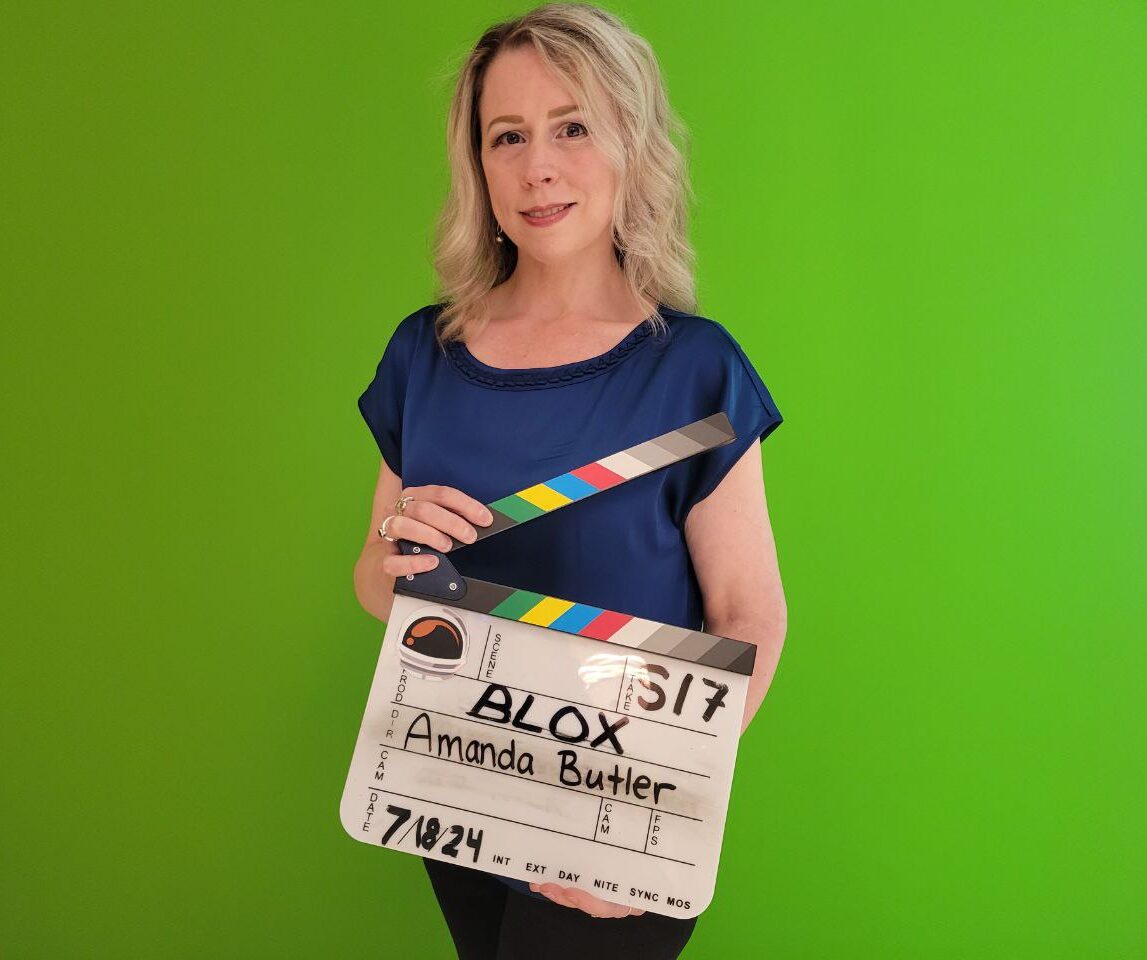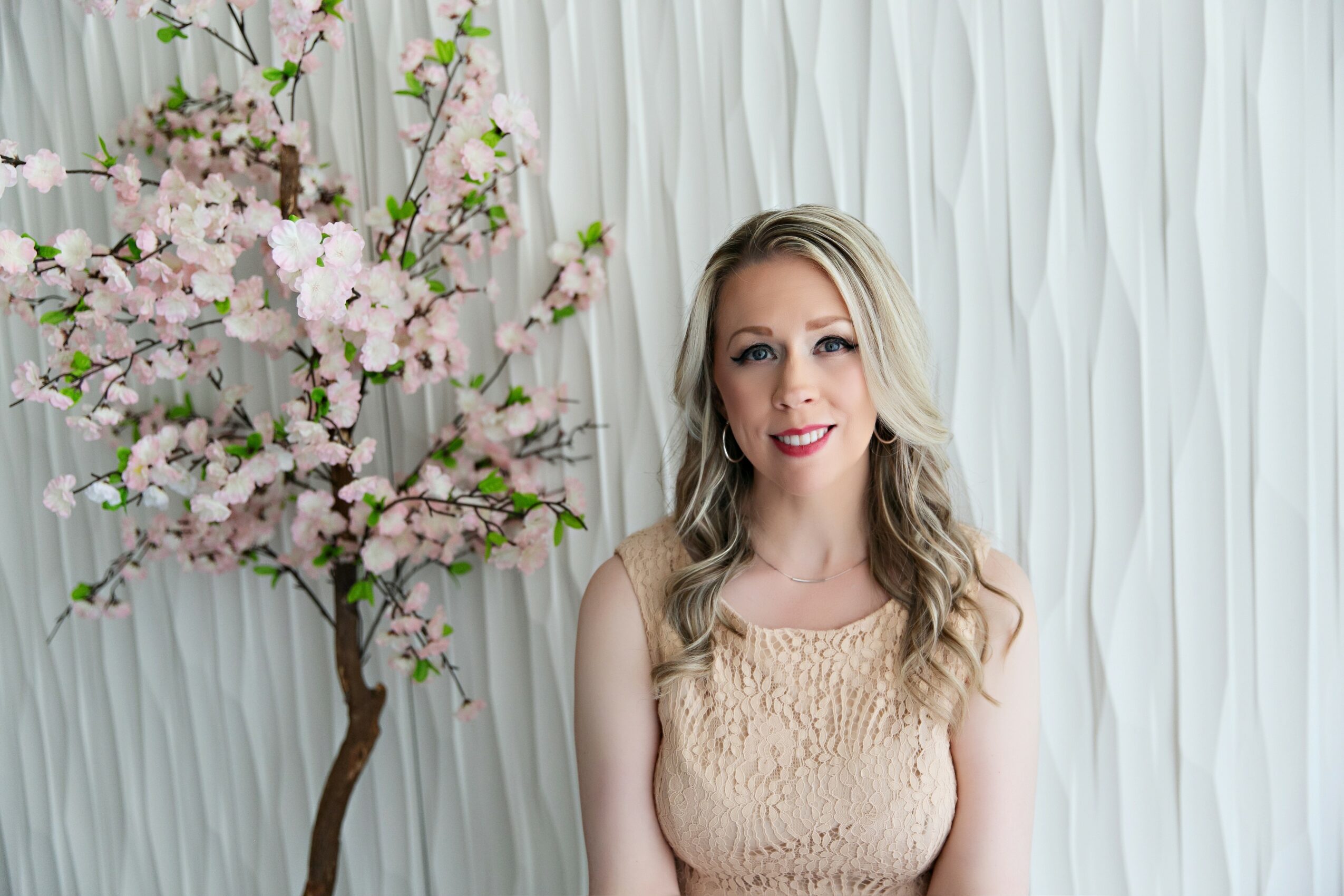

Amanda Butler shared their story and experiences with us recently and you can find our conversation below.
Hi Amanda, thank you so much for joining us today. We’re thrilled to learn more about your journey, values and what you are currently working on. Let’s start with an ice breaker: What are you being called to do now, that you may have been afraid of before?
Right now I feel called to step more fully into creating resources for those navigating a twin flame connection. For a long time, I was hesitant to do this—both because of how easily the concept can be dismissed in traditional psychology, and because so many of the resources currently out there are unhelpful, exploitative, or rooted in esoteric abstraction rather than real human relationship skills.
Now, I see that my training and experience as a licensed therapist uniquely position me to bridge that gap: to offer grounded, psychologically informed guidance that honors both the depth of the spiritual experience and the practical realities of relating to oneself and others. This work feels like my true path, even though stepping into it requires me to risk being seen in ways I once felt afraid of.
Can you briefly introduce yourself and share what makes you or your brand unique?
My name is Amanda, and I’m a licensed marriage and family therapist who has walked through both the traditional world of therapy and the uncharted territory of the twin flame journey. Out of that intersection, I’ve created The Twin Flame Therapist—a space for people who are experiencing this connection and are seeking real, grounded support that honors both the psychological and the spiritual dimensions.
What makes my work different is that I’ve lived this path myself. I know firsthand the ache, confusion, beauty, and devastation that can come with a twin flame connection. I also know how unhelpful most of the current resources can be—either dismissing the experience entirely as projection or limerence, or swinging to the other extreme with cult-like programs, endless esoteric jargon, or predatory coaching models. Too often, people who are vulnerable and searching for meaning end up feeling gaslit, exploited, or worse.
I believe there’s another way. My background as a therapist means I can provide tools for emotional regulation, relational skills, and self-understanding—things that are essential to living any kind of meaningful life, let alone navigating a connection as intense as a twin flame bond. But I also refuse to collapse the experience into purely clinical categories. Like Shakespeare wrote, “There are more things in heaven and earth, Horatio, than are dreamt of in your philosophy.” Twin flames, to me, belong in that realm: real, but not reducible.
At The Twin Flame Therapist, I’m building resources that meet people where they are—with honesty, humanity, and psychological depth. On my Substack, I write about what does and doesn’t help on this path, based on my own lived experience. I also create videos and reflections that help people reconnect to Source and their own truth, because so much of this journey is about learning how to live authentically—fully human and fully divine.
Right now, my focus is on expanding the reach of this work so that those who are searching don’t have to feel as alone as I once did. I want to bring credibility, compassion, and clarity to a topic that has too often been turned into either a joke or a trap. My hope is that by telling the truth of my journey and offering grounded guidance, I can help others feel less isolated and more empowered as they navigate their own.
Thanks for sharing that. Would love to go back in time and hear about how your past might have impacted who you are today. Who were you before the world told you who you had to be?
Before the world told me who I had to be, I was someone who believed in true love and infinite possibilities. As a little girl, I remember the way music would reach me before I even had words for it. My mom kept the radio on a soft rock station all day, and every so often a song would come on—”It Might Be You” by Stephen Bishop. The lyrics spoke about wishing there would be “someone waiting home for me” and wondering if “it might be you.” Even at that young age, those words captured me. I would wonder: Who will my person be? Will I really find him? That song planted a seed in me about love that feels destined, reciprocal, and deeply real.
At the same time, I was growing up with a sense of wonder about the bigger world. My dad and I used to watch Star Trek: The Next Generation and other Star Trek series of the 80s and 90s together. Those shows gave me a vision of a world where anything was possible—where people from different backgrounds, species, even planets could come together to work toward common goals. The message was that exploration, connection, and cooperation weren’t just ideals; they were how the universe moved forward.
Those early influences shaped me long before life’s hardships and expectations began to narrow the story of who I was “supposed” to be. The world told me to be practical, to be responsible, to focus on fitting into systems that didn’t leave room for mystery or for the kind of love I always believed in. But underneath, I never stopped being that child who believed both in a great love and in a universe bigger than what we can see.
That’s still who I am at the core: someone who hasn’t given up on true connection, or on the possibility of creating a more human, more expansive way of living. And it’s what fuels my work now as The Twin Flame Therapist. I want to help people remember those parts of themselves—their capacity for love, meaning, and possibility—before the world told them to stop believing.
If you could say one kind thing to your younger self, what would it be?
If I could say one kind thing to my younger self, it would be this: “You’re right to believe as you do. Hold onto that belief and don’t let the world take it away from you. It’s part of who you authentically are.” That child I was had a deep sense that true love was real and transformative, that connection mattered, and that infinite possibilities existed, and that a world of openness, exploration, and cooperation was possible. That wasn’t just childish imagination—it was my authentic compass, the signal of who I really am.
Over the years, though, life and its systems have a way of grinding down that kind of belief. The world tries to tell you to be more practical, more cautious, more “realistic.” It tells you that love like that doesn’t exist, that the mysteries you sense aren’t real, and that you have to settle for less. And I did, at times, internalize those messages.
But if I could sit with that younger version of myself, I’d remind her that her way of seeing wasn’t naïve. It was truth. Her heart was right. And the strength she’ll need later comes from never letting that flame go out, no matter how much the world tells her she has to.
So a lot of these questions go deep, but if you are open to it, we’ve got a few more questions that we’d love to get your take on. What are the biggest lies your industry tells itself?
One of the biggest lies I see repeated in the spiritual, self-help, personal growth industries—and even sometimes in mental health—is the idea that you’re never enough as you are. The unspoken message is that you always need another program, another coach, another session, another healing technique to finally be “ready” for love, peace, or a fulfilling life. It keeps people stuck on a treadmill, constantly chasing wholeness but never being allowed to arrive.
In spiritual circles especially, I’ve also seen the harmful belief that we must transcend our humanity to be worthy. That somehow the body, emotions, and real-life relational messiness are obstacles to be overcome instead of essential parts of who we are. This is where I part ways with much of what’s out there. I don’t believe we came here to erase our humanity—I believe we came here to embody it more fully. Even in the Gospel of Mary Magdalene, the phrase “to become fully human” is central to transformation.
When these industries feed people the lie that they’re perpetually broken, they profit off their longing. But real growth, especially on the twin flame journey, doesn’t come from endlessly fixing yourself. It comes from learning to relate—with yourself, with others, with the Divine—in truth, honesty, and authenticity.
That’s the path I’m committed to supporting. Not endless “healing” loops, but becoming whole in the life you’re already living, with the understanding that learning is meant to be lifelong and personal growth is an ongoing process; but without having to keep doing more and more to “prove” you deserve good things.
Okay, so let’s keep going with one more question that means a lot to us: Have you ever gotten what you wanted, and found it did not satisfy you?
Yes—I’ve definitely had that experience. In my mid-30s, I went back to school to become a therapist. It was a huge leap, and I poured years of effort, energy, and money into making it happen. What kept me going through the grind of underpaid internships, underpaid associate hours, and endless hoops to jump through was the thought that one day, I’d finally have my own private practice. That vision was my North Star during those difficult years.
When I eventually achieved it, there was a brief sense of pride and novelty—of finally being “here.” But it faded quickly. Within months, I realized I felt just as empty in private practice as I had working for other people. That was disorienting at first. I had chased this goal for so long, only to find that it didn’t give me the sense of fulfillment I thought it would.
Now I understand why. Becoming a therapist wasn’t the destination—it was the foundation, the stepping stone. It gave me training, skills, and a professional framework, but it was never the whole picture of my calling. My real work is as The Twin Flame Therapist, integrating psychology with the spiritual and relational realities of the twin flame journey. Traditional therapy alone could never satisfy me because it doesn’t hold space for the mystery, the archetypal dimensions, the soul-level truths that define this path.
So while becoming a therapist didn’t fulfill me in the way I once hoped, I see now that it was preparing me to step into my truer mission.
Contact Info:
- Website: https://twinflametherapist.com/
- Instagram: https://www.instagram.com/twin.flame.therapist/
- Linkedin: https://www.linkedin.com/in/amanda-butler-9267aa7/
- Facebook: https://www.facebook.com/AmandaButlerIntegrativeHealing/
- Youtube: https://www.youtube.com/@DivineSelfDivineUnion/videos
- Other: Substack: https://twinflametherapist.substack.com/
Psychotherapy Private Practice Website: https://amandabutlermft.com/
Buy Me a Coffee: https://buymeacoffee.com/amandabutler/extras
